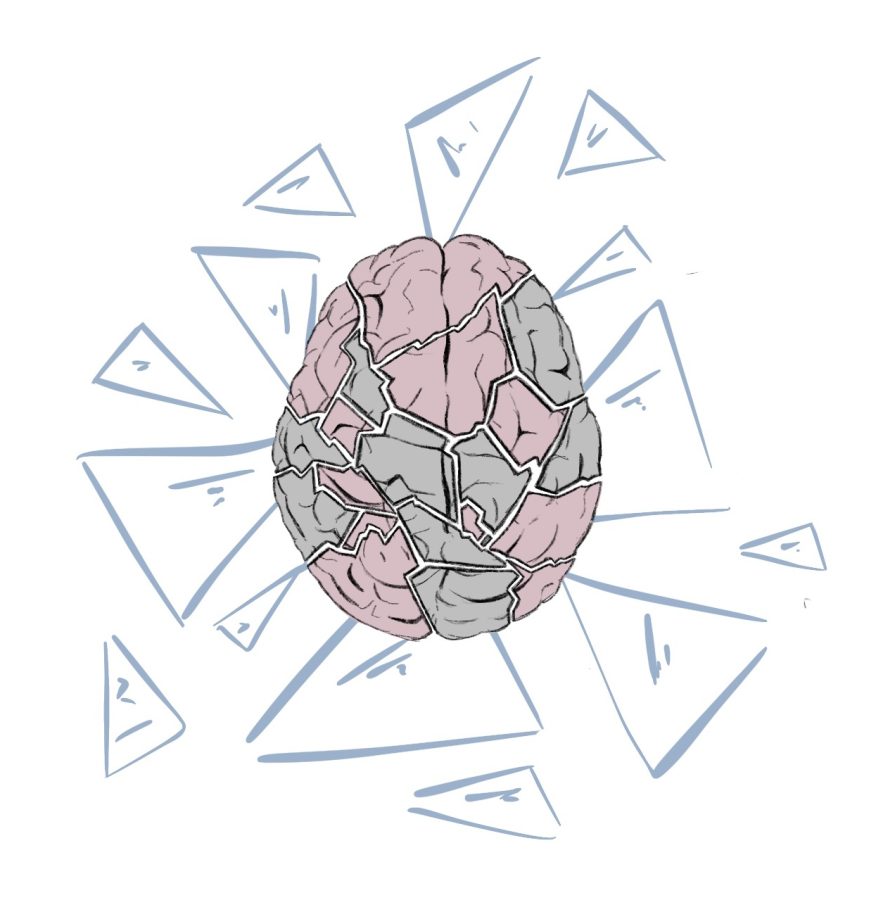Campus resources: Mental health emergency support
What support is available for on-campus students during a mental health emergency
Emergency support for mental health crises is available 24 hours a day for students when on campus. Mental health crises can vary greatly from person to person but are typically classified as any situation in which a person is at risk of harming themselves or others. To learn more about the resources offered for students in crisis, the Trinitonian spoke with Counseling Services, Trinity University Police Department (TUPD) and several Resident Assistants (RAs).
Counseling and Psychological Services and Helpline
During Counseling Services’ working hours, students in crisis can make emergency walk-in appointments with an on-campus counselor.
“[A student] can call or email or come by counseling services and say ‘I am having a mental health crisis or ‘I am having an urgent mental health need’ […] We are equipped to help with that. We will find a way to meet with someone who is having a mental health crisis right now,” said Lori Kinkler, Associate Director of Counseling Services.
Kinkler said that outside of their work hours, a 24/7 hotline (210-900-7000) is available for students in crisis to speak with a Trinity counselor. The hotline will first connect students with a TUPD officer who can then transfer them to an on-call counselor. However, if a student does not wish to speak with a Trinity counselor, a full list of outside crisis support is available and provided by Counseling Services.
TUPD
As mentioned before, when a student calls the emergency hotline number they will first be connected to a TUPD officer. TUPD officers are on campus at all times and can intervene if a student is in need of immediate medical assistance.
“All of our officers train annually in crisis intervention and several of our officers are certified mental health officers,” said Paul Chapa, TU Chief of Police.
After speaking with a TUPD officer, students can request to speak with an on-call counselor or TUPD can provide the student with transportation to a local hospital if needed.
Resident Assistants
During an emergency, RAs can often be students’ first port of call during a mental health crisis, so the Trinitonian talked with several RAs on campus about the support they provide to their residents.
“I feel that the RA position is mainly seen as a position to enforce rules, but that is not what the main goal is. The main goal of the position is to be a support for the students,” said Thomas Bates, an RA for first-year students.
RAs are trained to help support their students as they navigate college, while oftentimes away from home for the first time. This can be a stressful and challenging time, but RAs are trained to help ease the burden for their residents.
“My job is to find students on campus who are maybe struggling a little more and be their first connection on campus,” said Ameer Mustafa, an RA for first-year students.
Students may not reach out for help because of a myriad of reasons, including fear or shame, but by communicating with RAs students can help get connected to support systems.
“Don’t be afraid, we are here to help you. Say whatever you need to say and don’t feel like you need to filter out what you need to say. You are not going to be judged at all… we’ll help you in whatever way we can or just provide you [with] the resources that could potentially help you,” said Taylor Black, an RA for first-year students.
RAs often work to get students connected to long-term mental health support. Counseling Services, academic support and disability services are a few of the resources RAs can help connect their students with.
“I think one of the main things RAs are good for is if [students] don’t feel comfortable reaching out to higher-ups and they just want to know what other resources are available,” said Sydnie Counley, an RA for sophomore students.
Continued Mental Health Support
Counseling services can provide bi-weekly therapy appointments, but if students are in need of more regular or specific care, counseling services will help students find outside providers who can support their needs.
“We continue meeting with students on a bi-weekly basis and help them choose a provider. [We] help them make those initial phone calls to get connected with somebody, and answer questions about transportation and assist with any barriers that might come up,” said Kinkler.
More information regarding student mental health resources can be found on the Trinity Counseling Services Website. This includes a comprehensive list of on-campus staff and off-campus resources that can help students with more specific needs.



